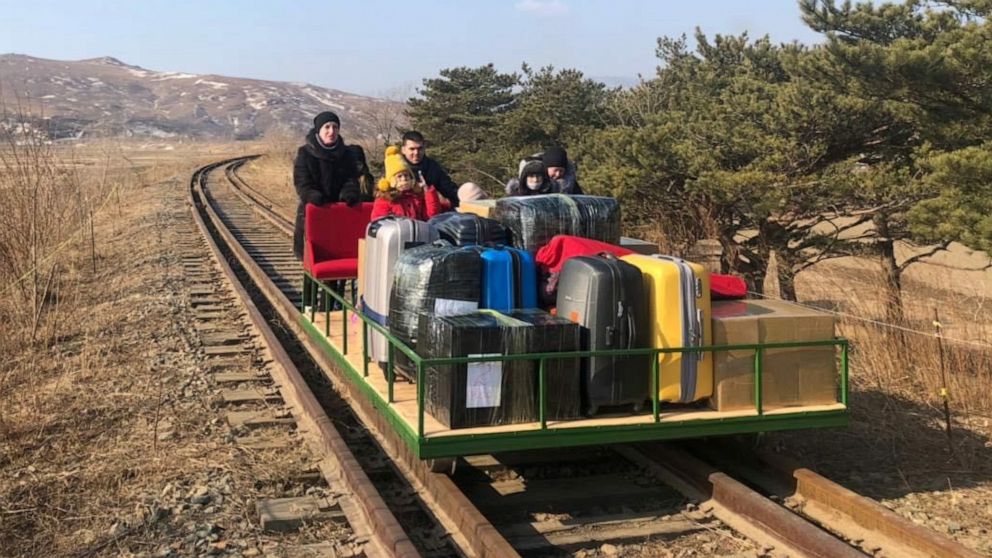
COVID restrictions forced diplomats to find an unorthodox way home.
This is not your standard diplomatic transport.
A group of Russian diplomats and their families were forced to use a manual rail cart to get home to Russia from North Korea due to travel restrictions imposed by the pandemic.
A video released by the Russian Foreign Ministry on Thursday shows diplomats pushing the car, stacked with their suitcases, along a railroad through the barren landscape near North Korea’s northern border.
The ministry said the group was working at its embassy in Pyongyang and had to improvise because travel ties between the two countries had been severed for more than a year.
“As the borders have been closed for more than a year and passenger communication is suspended, it was necessary to get home on a long and difficult road,” the ministry said in a post on social media, accompanied by a hashtag In Russian: “No man was left behind.”
The group of eight embassy staff and members of their families, including children, first took a 32-hour train ride and then a bus to the border area, the ministry said, where the car was prepared and mounted on rails. Diplomats pushed the wagon over a mile to cross the border.
In the video, the group smiles and cheers as they cross a bridge to the Russian side of the border in Khasan, where the foreign ministry said the group was met by its representatives who were waiting by bus. The group was then driven another 160 miles to Vladivostok airport.
The Russian ministry said one of the diplomats, Vladislav Sorokin, was secretary of the embassy.
North Korea closed its borders for international travel in January last year. The country has insisted it has no cases of COVID-19, a questionable claim by many experts.
Many countries have struggled to repatriate both their citizens and diplomats during the pandemic, while international air travel has closed and countries have closed their borders. The US State Department said in April last year that it had evacuated 6,000 diplomatic employees around the world as the pandemic spread, an unprecedented number.